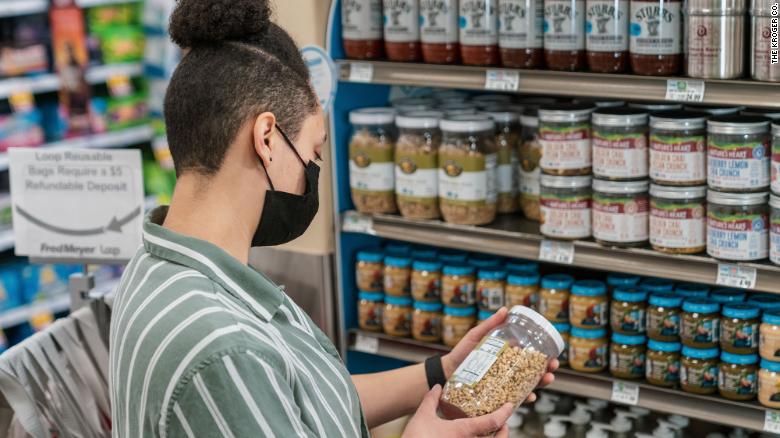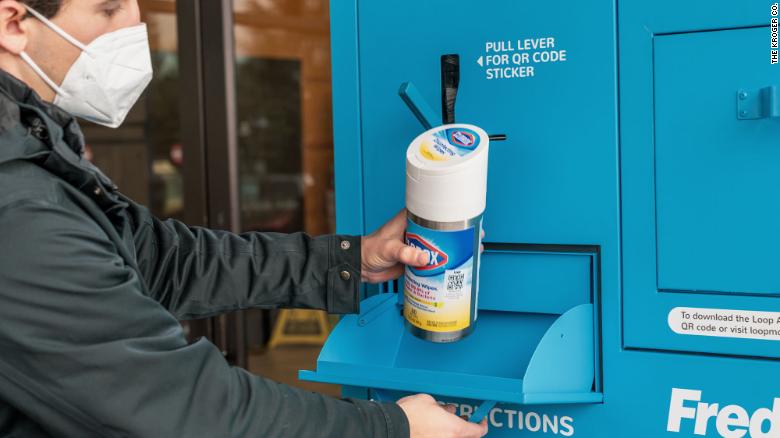Tom Szaky started TerraCycle to reaffirm his belief that Nothing is Waste and to give waste a second life through recycling
By Bismita Rabha
In the recent decades, there has been a considerable change in the youth’s mindset towards private businesses. More start-up companies have mushroomed, driving the economy, creating employment, and producing waste. When combined with the pre-existing corporations that used more conventional ways of production, the waste ending up in landfills has reached unimaginable levels in the 21st century. With more emphasis on climate action by people, a wave of change is on its way.
Determined to take environmental responsibility seriously, Tom Szaky started TerraCycle - a recycle solution for every kind of waste, even the ones with a “nonrecyclable” label. Redefining the concept of waste and encouraging waste to be given a second life through recycling.
Princeton University dining hall: The birthplace of an idea
In spite of dealing in millions presently, TerraCycle started out as a vermicomposting model. Tom reminisces about the time when he conceptualised the business. “I got the idea for TerraCycle as a college freshman at Princeton University in 2001. The original business model was vermicomposting (converting food waste into worm poop), packaging it in used soda bottles and selling the resulting fertiliser. I sourced the food waste from the Princeton dining hall’s leftovers and in order to find a larger supply of packaging, I recruited the help of local students to collect used soda bottles - essentially creating a precursor to our current free recycling programs which student organisations and community groups use as a fundraising activity.”
TerraCycle no longer produces fertiliser, but has pioneered recycling solutions for some of the world’s toughest garbage problems, proving that everything is technically ‘recyclable’ and developing solutions for nearly every waste stream you can think of, including drink pouches, used toothbrushes, cigarette butts and even dirty diapers! In short, TerraCycle takes waste that is not recyclable through conventional methods (i.e. your municipality’s curbside recycling program) and turns it into raw material that is then used to make new products.
No trade-offs
With more than 10 years’ worth of hard-work and innovation, TerraCycle is now operational in 21 countries which includes the UK, Brazil, France, Germany, Sweden, Japan, China, Canada, Mexico, New Zealand and Australia. However, reaching this milestone has not been a smooth road. “Despite being on the verge of bankruptcy only one year into starting the business, I turned down a million-dollar grand prize from the Carrot Capital Business Plan,” says Tom, as the investors were keen on reducing the company’s focus on the sustainable actions and suggested firing the staff that helped him build the enterprise. After turning down the winnings, adversity sparked innovation and TerraCycle’s breakthrough came in 2004 when The Home Depot and Walmart started selling their little-known “wormpoop” fertiliser in re-used soda bottles.
TerraCycle has always strived to “eliminate the idea of waste,” and for all these years of operation, they have been supporting this mission by offering consumers and the (CPG) viable solutions, many of which were previously unavailable, to recycle packaging waste.
To date, over 200 million people worldwide have collected nearly 7.8 billion pieces of pre- and postconsumer waste and over US$ 44 million has been donated to schools and nonprofits.
“TerraCycle’s ultimate measure of success is not just greater access to recycling, it is the universal adaptation of the “reduce, reuse, recycle” adage we were taught as children,” shares Tom.
TerraCycle acknowledges the challenge of waste not being handled properly and recycling units not being enough. Moreover, they consider recycling a “band-aid to the global waste crisis.” There is no “silver bullet” to realise the vision of “eliminating the idea of waste.” It is a process that requires generous contribution from everyone.
Reducing consumption, investing in reusable packaging technology, and when materials can no longer be reused, recycling them is the solution. TerraCycle’s vision of success synthesises these approaches in pursuit of a truly “circular” economy in which resources are reused continually rather than being disposed of after a single use.
Looping in
TerraCycle is reaching newer dimensions with its work. Tom informs, “As we move forward as a brand, we will continue to implement new programs that build towards this idea of a circular economy. The launch of Loop in-store, the first-ever circular shopping system, enables consumers to shop for their favourite products in reusable, not disposable packaging.” It is a sustainable, zero-waste version of shopping for your daily needs like food, personal care, household goods and other supplies.
In the Loop store, you can return all their durable packaging once you have finished the product, and Loop will clean, refill and reuse all of it. A number of brands like Coca Cola, Heinz, Dr. Will’s and more are partnering with Loop to make eco-conscious consumption simpler. Other than that, emerging business units include TerraCycle Home, which offers food waste collection and composting services as well as recycling services for items not accepted in local recycling programs; TerraCycle Made, that makes products out of materials the company recycled, will also create more opportunities for the consumer to lead more sustainable lives. »



